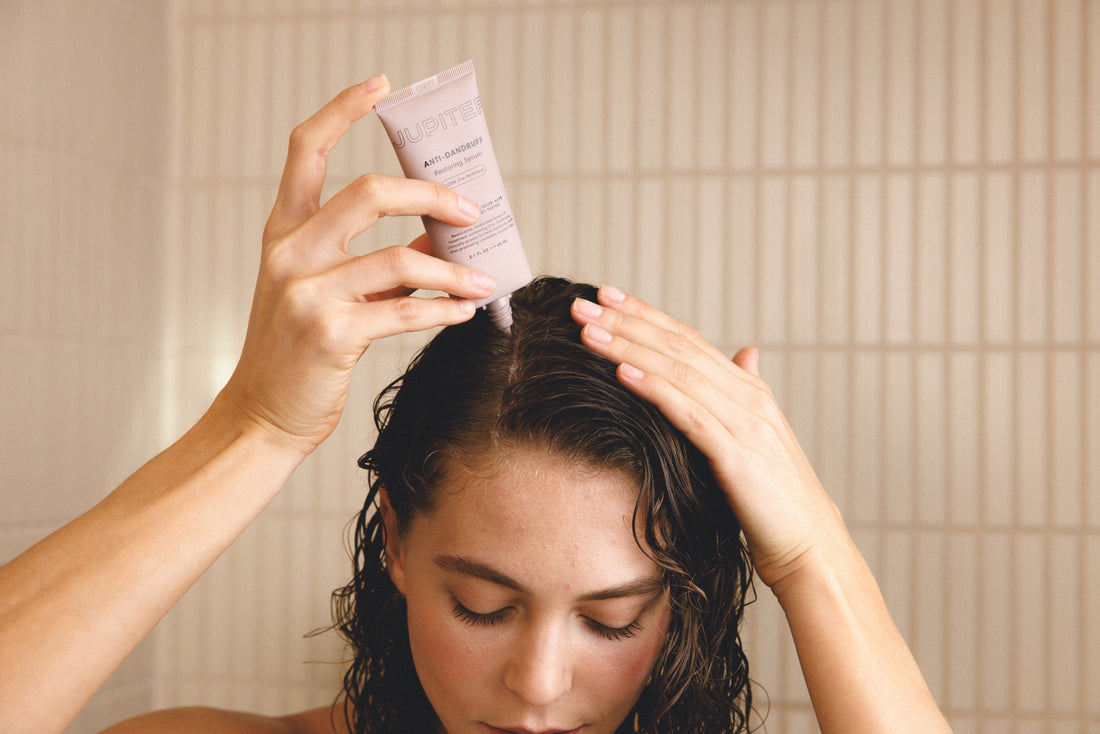
Hair Oil Vs Serum: Which Is Better For You?
Share
Let’s be honest. Sometimes it can feel impossible to know what your hair actually needs. Serums, elixirs, oils, masks. It can be a little overwhelming. Most of us feel like we only have time for a shampoo, conditioner, and maybe one additional hair product.
So which one should it to be?
Well, the answer is different for everyone. Today we’re going to talk through two popular ones: scalp and hair serums and oils.
These two are commonly used interchangeably, but they’re quite distinct and describe two different categories.
A Formula vs. An Ingredient
Many hair care blogs may define serum and oils as two distinct solutions for dry, frizzy hair. We want to set the record straight. Applying essential and carrier oils directly to your scalp is risky.
You can never know how your skin will react when exposed to oil at that volume.
Instead, think about oil as an ingredient to the formula making up a serum. Essential and carrier oils can be quite effective at hydrating the scalp and restoring hair’s natural barrier but should be applied in scientifically-proven quantities.
It’s the safest way to introduce a product to your scalp, especially if it’s already dry, sensitive, and prone to redness and irritation.
Let’s dig a little deeper on each.
Serum
Hair serum or scalp serum describes a wide variety of products that can accomplish many goals. Some of the most popular hair serums out there help to reduce frizz while popular scalp serums will soothe irritated, flaking skin.
Most hair serums are silicone-based, giving them a thick and smooth consistency, which helps protect hair strands and rehydrate the scalp. By giving your hair strands some slip and texture, hair serums help boost your natural curl pattern. They frequently make your hair look smoother, shinier, and more healthy.
A hair serum can also help protect your hair from damage, which is why many professional stylists (and you too, we hope) apply protectant serums when using heat tools like straighteners, blow dryers, and curling irons.
Serums are really interchangeable, depending on what your hair needs. They can do much more than just reduce frizz.
Scalp serums, on the other hand, are focused on applying nourishing ingredients to the skin of your scalp to promote healthy skin and a balanced scalp microbiome. Healthy hair starts at the scalp, and scalp serums are an important part of keeping your skin and hair healthy looking.
Oils
Oils frequently appear on the ingredient labels in hair serums and other hair care products. Essential and carrier (milder) oils are natural, plant-derived ingredients with numerous benefits to skin and hair health.
Many oils are naturally anti-inflammatory and contain antioxidant properties, meaning they can soothe irritation and restore the natural balance of your scalp’s microbiome.
You’ll frequently see oils like lavender, tea tree, and lemongrass appear in hair serums. Because of their antibacterial properties, all three of these oils may improve hair health.
Some studies have even tied them to hair growth, though much more research is necessary to definitively support that claim.
Think about it like this. Oils are the building blocks of an effective hair serum. Their natural benefits are what make them essential ingredients, alongside other elements like aloe vera, proteins, and silica.
When Should You Use Hair Serum?
It’s not at all uncommon to turn to hair serum when your hair is feeling dry, dull, and lifeless. As we mentioned, hair serums can go a long way in restoring balance and vitality to your hair, and protecting it from damage.
Scalp serums can also do much more than that.
When Should You Use Scalp Serum?
Sometimes the delicate balance on our scalps can get thrown off - leading to scalp discomfort like flaking, itching, and redness associated with dandruff.
Dandruff is the result of an overgrowth of fungus on the scalp. It sounds scarier than it is. Our skin actually is supposed to have fungi on it. The trick is having the right amount. When we start seeing that oily build-up of flakes, synonymous with dandruff, we’re usually also playing host to an overgrowth of a yeast called Malassezia.
How to deal? Enter the scalp serum.
Jupiter’s Restoring Serum is formulated with the active ingredient, Zinc Pyrithione, which is scientifically proven to stop the growth of Malassezia, ultimately controlling oil production and bringing order back to the scalp. Combined with aloe vera juice and niacinamide, it’s our go-to for controlling scalp discomfort between washes and on the go.
Maintaining a healthy scalp is the first step to beautiful, healthy-looking hair. So keep our Restoring Serum handy - your scalp and hair will thank you.


